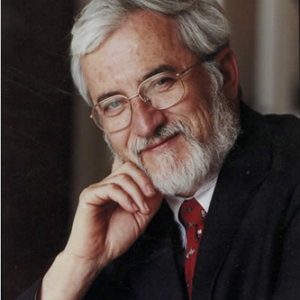Dr. Margaret S. Clark is an experimental social psychologist with additional interests in personality. Her research focuses on optimal intra- and interpersonal functioning close relationships, the social functions of emotion, and the intersection of those two areas.
Clark has long been interested in the normative nature of interpersonal processes as they occur within family relationships, friendships, and romantic relationships and in how the norms that apply to such relationships differ from those that apply to relating to acquaintances and business partners.
Much of her early work was devoted to demonstrating that the norms governing the giving and receiving of benefits in such close relationships are distinct from those which govern the giving and receiving of benefits in other relationships. These ideas were originally expressed in papers published in the late 1970’s and early 1980’s (e.g.Clark & Mills, 1979; Mills & Clark, 1982) and they have been greatly updated in recent papers (e.g. Clark & Mills, 2012).
In particular, early on she proposed that it is normative (and beneficial) for people to give benefits, non-contingently, in response to a partner’s needs, if and when such needs arise. In contrast, in other relationships benefits are given contingently.
Early studies demonstrated that in relationships desired to be communal (but not other relationships) people react negatively to being repaid for favors and to receiving requests for repayment (Clark & Mills, 1979), do not keep track of inputs into the relationship (Clark, 1984; Clark, Mills, & Corcoran, 1989), and prefer giving and receiving non-comparable to comparable benefits (Clark, 1981). Furthermore, in communal (but not other relationships) needs are tracked (Clark, Mills, & Powell, 1986; Clark et al. 1989), help is given willingly and often (Clark, Ouellette, Powell & Milberg, 1987), emotional expression is welcomed and responded to positively (Clark et al., 1987; Clark & Taraban, 1991) and giving help freely and non-contingently boosts one’s mood (Williamson & Clark, 1989; 1992).
More recently, Clark observed people’s ability to adhere to communal norms within ongoing, intimate, relationships – most often marriages. People do, overwhelmingly, follow communal norms in these relationships and they and their partners feel best when they do so (Clark, Lemay, Graham, Pataki & Finkel, 2010). Clark also observed that expressing emotion, which conveys need states, is welcome in such relationships and valued and that it carries with it a host of benefits (Clark & Finkel, 2004). People who are low in trust of others, however, do have difficulty adhering to communal norms in the face of adversity and show tendencies to switch to exchange norms under such conditions (Clark et al., 2010).
Regarding the social functions of emotion, current research is demonstrating the value of feeling and expressing hurt and guilt to preserving communal relationships and the value of feeling and expressing gratitude to building and strengthening communal relationships. Other work focuses on people’s willingness to express emotion to partners and how that willingness is closely linked to the communal strength (Mills, Clark, Ford and Johnson, 2004) of a relationship.
















